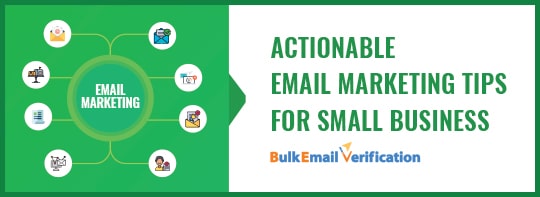
The GDPR (General Data Protection Regulation) is the largest overhaul of EU data protection law in over 20 years. It made a unified data protection legislation awning all individuals in the European Union (EU), and it took effect on 25th May 2018.
New EU privacy laws have a worldwide impact. The regulation’s extraterritorial nature means GDPR will impact any business that processes or has access or the personal data of EU residents, no matter where the business is located, or it gathers the data.
The core motto behind designing GDPR is to increase the personal data protection level for all EU residents no matter where it’s collected or stored.
Now, this extraterritorial nature of these regulations is going to be felt worldwide because all companies that gather data of EU residents will have to comply with the legislation, regardless of which country they themselves are based in.
Take, for example; a business is selling small business VoIP software. In case they gather data on website visitors from the EU, they must match the standards defined by the GDPR, no matter they’re based in Australia, the USA, or anywhere else.
The deeper word
So, how Did GDPR Come About?
Organizations soon grasped the significance and value of personal data. Organizations in all niches understood that the info could give vital opportunities and insights. The public, as well as the government’s/administrations representing them, were somewhat slower on this uptake.
Now, that led to a terrible need for legislation to protect personal data. And make sure companies use data with full responsibility.
The GDPR can be called the EU’s response to that requirement. It replaced a 1995 directive known as the European Data Protection Directive, and that piece of legislation had aristocratic aims. However, it failed to predict the exponential potential and growth of the internet.
In 2016 it was the first time when the GDPR entered into force. However, it was on 25 May 2018 that the regulation came fully into effect. From that point onward, all organizations became needed to be compliant.
GDPR doesn’t begin with technology
GDPR is a legal compliance matter, achieved through a strong data privacy compliance framework. Honestly saying, technology can certainly help maintain compliance, but just the technology deployment alone won’t satisfy all GDPR requirements.
It’s essential to create the perfect legal foundation to comply with GDPR.
General Data Protection Regulation Covers What Sort of Data?
Virtually every bit of data pertaining to people residing in the EU will be shielded by the GDPR.
Now, it includes not just uniquely identifying information like official identity documents identical to Social Insurance Numbers in Canada, Social Security numbers in the United States but also information daily requested by websites, such as IP and email addresses, online financial information such as online transaction histories, individuals’ home addresses, birth dates, and physical device information such as a MAC address.
However, that’s not everything the GDPR safeguards. The legislation also ensures top-level protection of user-generated data, for example, social media posts (including Facebook updates and individual tweets) and personal images uploaded to any site, including those that don’t feature the likeness of the individual who uploaded the image.
Besides that, the GDPR covers medical records besides other uniquely personal info commonly transmitted online. Necessarily, the GDPR protects all personal user data across virtually all conceivable online platforms.
Why is the GDPR Necessary?
Several European nations already have their own strong data collection and storage laws. However, the GDPR’s intention is to make safeguarding users’ data even easier, stronger, and more uniform across the EU, unifying existing data protection rules across its 28 member states.
European consumers feel it easier to take a more dynamic role in how their data is shared and retained by private enterprises. Besides that, it offers businesses overseas just one regulatory framework to which they’re supposed to adhere, instead of the patchwork of numerous protections and regulations currently in law across the European Union.
This could be a humongous benefit to companies that operate in several EU member states because the GDPR will supplant any and all existing data protection and privacy laws upheld by the EU’s member states in today’s date.
What Does the GDPR Mean for Foreign Businesses?
The GDPR states that companies across the world, irrespective of their location, will have to comply with GDPR laws on how user data of EU nationals is gathered, processed, and stored.
Compliance with the GDPR reflects that companies essentially switch to an “opt-in” approach from an “opt-out” approach; instead of forcing users to simply opt-out of having their private data gathered and stored, users must rather give companies their express permission regarding virtually all aspects of data security of an individual.
Now, this applies to everything from anything such as seemingly innocuous, for example, automatically signing up web visitors to an email newsletter to wider-scale efforts, like the pseudonymization of user data.
The section of the legislative package called Article 22 is among the more contentious elements of the GDPR, which concerns automated user profiling and algorithms.
Under the GDPR, all European users have the legal power to question or appeal how their private info is displayed by algorithms that Google uses in its search business.
This is an addendum to the “right to be forgotten” laws that generated big headlines when the measures were introduced in Argentina and the EU for the first, back in 2006.
GDPR and Email Verification service: What’s the big note?
Let’s understand the business’ point of view.
It’s undeniable that month’s GDPR regulation update has a great impact on email marketing. In case you’re in this business, you might have a few questions as to this impact actually impacts your processes and strategy.
Essentially, the core changes businesses are going to have to bring are around consent, both historically and recently obtained – not only actually gathering it, but finding it and storing it – to ensure you’re perfectly complying with the new rules of GDPR and avoiding fines, and that’s where email verification comes in.
So, what’s the wording and criteria
The wording and criteria
GDPR defines how the personal data of the users – including email addresses – can be taken care of by companies. As of May 25, 2018, all businesses will have to obtain consent from their users that is given freely, backed by an informed bearing, tailored to the service they’re being receiving, and unambiguously gathered.
It’s in the interest of both the company and the user, as it secures subscribers’ personal info and safeguards businesses against as huge as 4% of annual turnover in fines.
Here are the basic criteria to break it down:
- Pre-checked boxes must be removed.
- Users must opt into the company’s emails actively, with the knowledge that they’ll receive communications.
- A request for consent can’t be incorporated with standard terms and conditions – it’s supposed to be separately listed.
- keeping a record of consent as a proof is vital
- Businesses must offer a conveniently accessible option for web users to opt back out.
- You need to prove that you have taken steps to keep personal data safe.
- All historical opt-ins need to be checked for compliance, including initiating a new consent campaign and verifying email lists.
The next step
Timely and relevant, as GDPR is a hot topic for news and social media, this campaign will form a huge part of your marketing strategy. It’s crucial that it performs correctly, so it helps you in retaining subscribers. You can also use it to remind users regarding your brand, increase engagement and also release new updates and information.
Before sending this campaign out, you need to start the process of ensuring proper cleaning up your email lists. You may have streaks of outdated addresses, those which have been ambiguously gathered or those that have been noted in your system with errors, all of which you’ll unwantedly increase your bounce rate and put yourself at risk of storing unconsenting email addresses.
Enlisting an email verification service is a pretty simple and effective way to fine-tooth comb through your whole database, and it’s a cost-efficient way as well.
So, which are the best GDPR Compliant Email Validation Services to trust?
Every single Email validation service isn’t GDPR compliant, and you’re supposed to check whether the service you’ve chosen is GDPR compliant or not.
However, we’ve eliminated your hassle and listed 5 best GDPR Compliant Email Validation Services for you.
MyEmailVerifier: The ultimate Best choice
This superb bulk Email Verifier service believes in making tough things possible in email marketing and offers unbelievable perfection. There are a few things that no other email verifier out there can! Are you worried about the pricing? Let us enlighten you that it’s among the most reasonable service providers in the industry. Read more HERE.
ListWise: Simplest
ListWise is developed and maintained by the manager who did that for Maxmail, CyberCom. This tool offers a huge variety of services that every email marketer will find too useful, and these services include potential bounces, cleaning lists, and removing duplicates.
You can get your email list cleaned up by eliminating all the bad emails in no time. The tool uses a worldwide network to keep track of all the messages previously bounced. Read more HERE.
DeBounce: Best Deliverability Guarantee
If you want a reliable email verification service that offers both web applications and restless API, then here comes Debounce for you. You’ll get perfect assistance for finding and removing all duplicate and no-reply emails and decrease your bulk.
Besides that, the service automatically ratifies any mistakes you made when making the email lists. DeBounce is an accurate and fast email verifier guaranteeing %97 accuracy. Read more HERE.
Clearalist
Clearalist is known for its rapid verification speed. It detects Bad domains, Role Based accounts, Spam keywords, Invalid email addresses, Habitual complainers, and Disposable email addresses (DEA) and eliminates all such contacts from the list, making your list and your campaign healthy.
Claiming 99% accuracy, Detect the catch-all type addresses and avoid emailing, thereby elevating the overall deliverability hygiene. Read more HERE.
ZeroBounce
For real-time verification, Zerobounce has an email validation API that you can conveniently connect with your sign-up forms, registration forms, and whenever you gather leads. This helps you in verifying your leads right at the time of entry, making it possible for only genuine leads to enter your system. Read more HERE.
Ensure the following before sharing personal data with any email verifier service
The legitimacy of business
Several businesses have tremendous presence over the web. Several have huge social media following and also are very active there, and even have huge awards.
But does all that really mean they have GDPR legitimacy?
Tiy know what, if you fall behind just numbers and size of the business, you may risk your email campaigns, and even attract legal issues.
So, what should you do? Well, just spend some time researching the company’s work, testimonials, and you can also directly chat or call them and ask whether they’re GDPr compliant or not, and if yes, then show proof.
Written Contracts
While cherishing the website of the email verifier service you’ve selected, you need to find the Written contracts and read them, as they ensure both the data controller and processor understands their responsibilities and liabilities. It certainly eliminates misunderstandings in future.
For your knowledge, if you directly buy any email verification services, and later get into any troubles, then you’ll be liable, and not the service provider, as you show it at your own will.
So, just go for the email verification service who can provide “sufficient guarantees” regarding GDPR compliance, and ensure you that the rights of data subjects will be protected. If you fail to find any written contacts on the service provider’s website, then you can ask for the link of the page displaying written contacts through chat.
Noh, the job isn’t finished there.
You should closely check the page’s link and ensure that page is actually a part of the original website (look there are no spelling changes in the domain name).
Transparent Data protection and privacy policy
Never show any haste in handling your data to any email verification service. Find out data protection and privacy policy on their websites, and not just that, read every point of those pages closely. Find out what exactly they’re doing with your data, and most importantly, whether they’ve mentioned GDPR or not.
Don’t trust what’s spoken to you or any promises made in the chat. If a company does not have a privacy policy on its website, they definitely will not follow it.
In our testing, we found that there are several email verification vendors rolling on without any public policies and responsible persons, still they have a considerable customer base. So, be certain!
Data protection officer
Under GDPR set of rules, businesses that carry out large-scale processing of special categories of data must appoint DPO. All the email verification services process large-scale data, if they have not appointed a DPO, they are not allowed to process data of European Union citizens.
How to identify illegal Email Verification services
- Published company name and address: Before signing up, it is really necessary to check whether the company name and address are published on the website. Also, the person responsible for data protection needs to be checked. If any of the details are missing, it would not be feasible to take services of such email verifiers.
- Privacy and data protection policy – If either of the policy is not published on the website, then a company can’t be entrusted for GDPR compliance.
- Data protection officer – Email verifiers are required to hire a DPO by law, stay away from the vendors who operate with a dedicated data protection officer.
Important Notes
- Personal Data – Personal data under GDPR means any information relating to an identifiable person who can be directly/indirectly identified in particular by reference. Email address is the personal data here; you must have a significant basis in order to process personal data, such as a rock-solid opt-in process and means to secure data.
- Data Controller – Here customer or the user of email verification services is termed as Data controller. Data controllers are not relieved from obligations where an email verification service is involved. GDPR places further obligations on the Data controller to ensure all the contracts with email verifiers are GDPR compliant.
- Data Processor – A processor is one who is responsible for processing data on behalf of a controller. Here, the email verification service is the data processor. Email verification services are required to maintain records of personal data and processing activities. Email verifiers have legal liability if responsible for the breach.
The Conclusion
As we mentioned, there are no straight rules for GDPR compliance, and it can be challenging for common folk to find out whether any email verification company is exactly following the GDPR set of rules or not. It’s better to trust any of our selected email verifier services, as it’s totally safe, backed by our lengthy research for the same.
For a quick answer, we’d say go with MyEmailVerifier, and they’re the ultimate best. Just grab their low cost service, and forget worrying about email verification.


